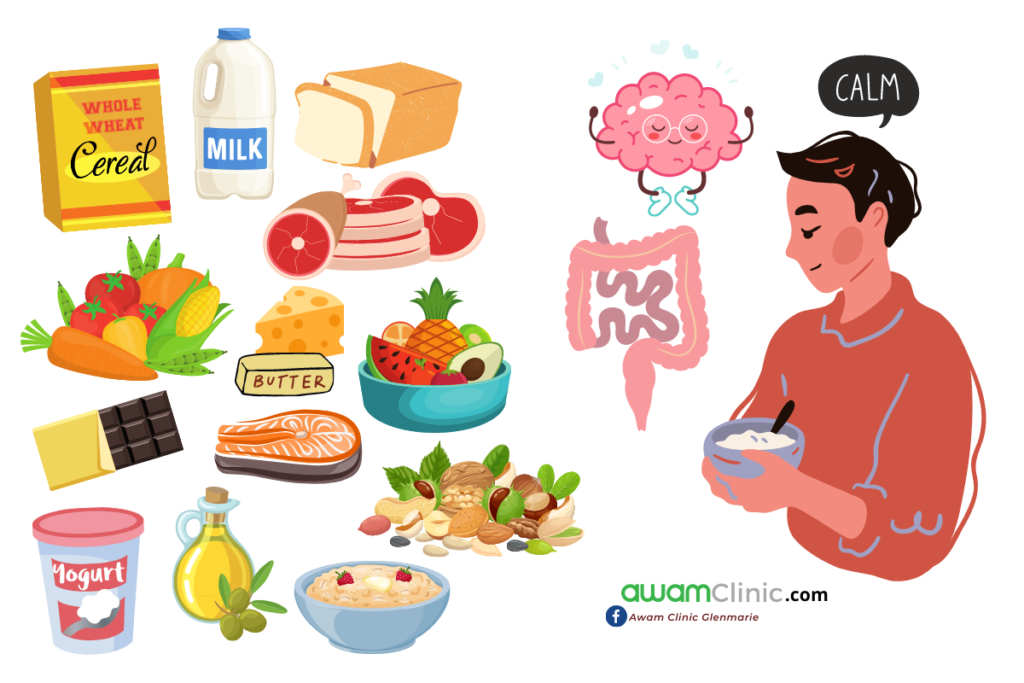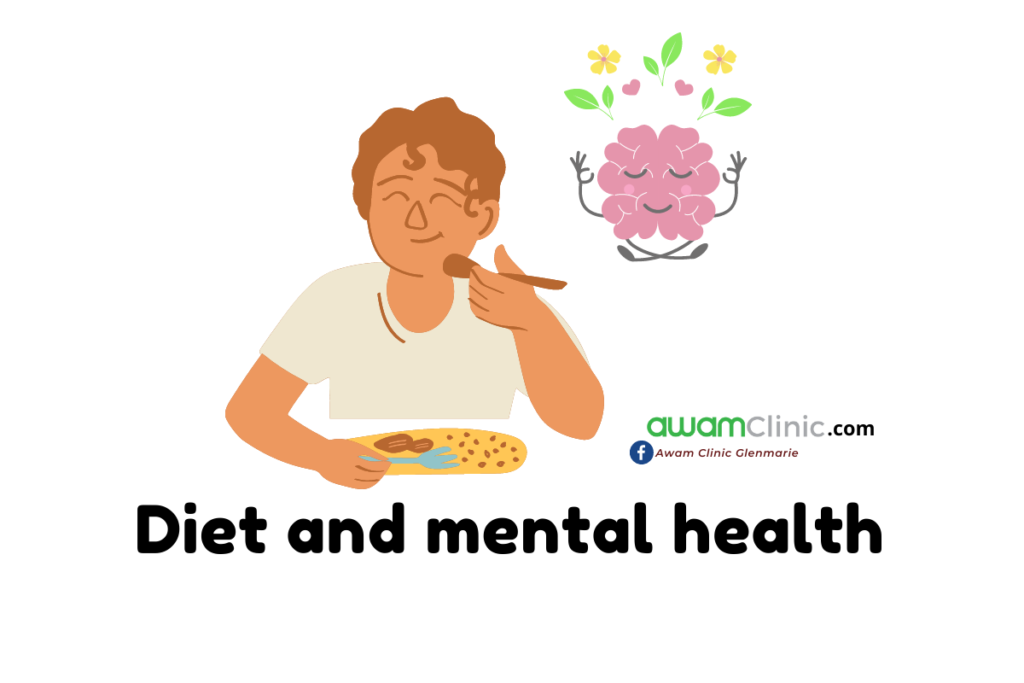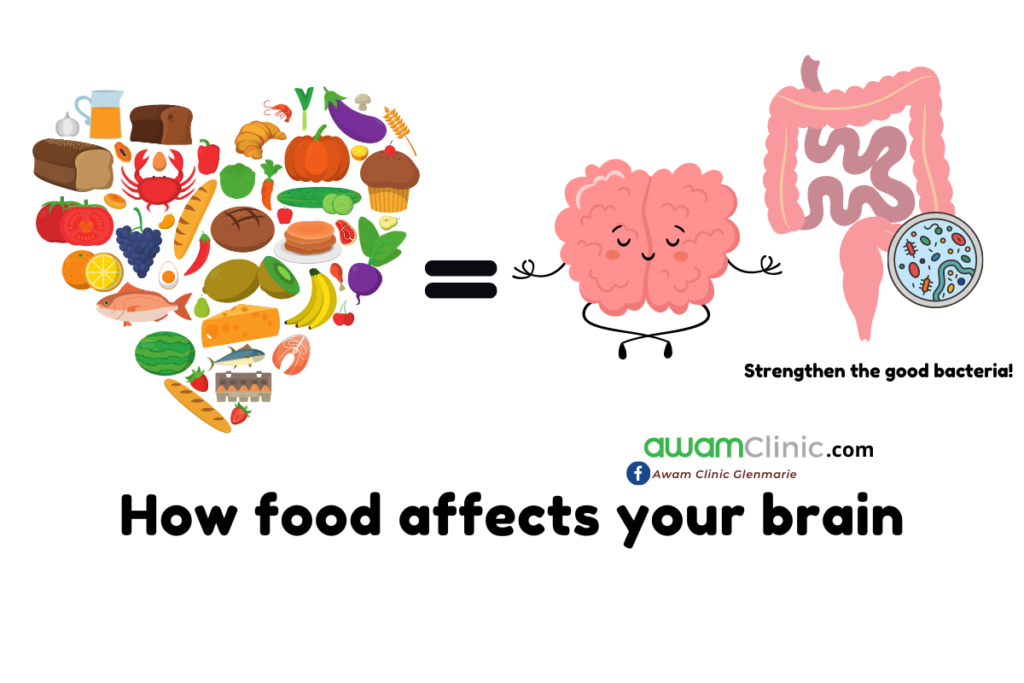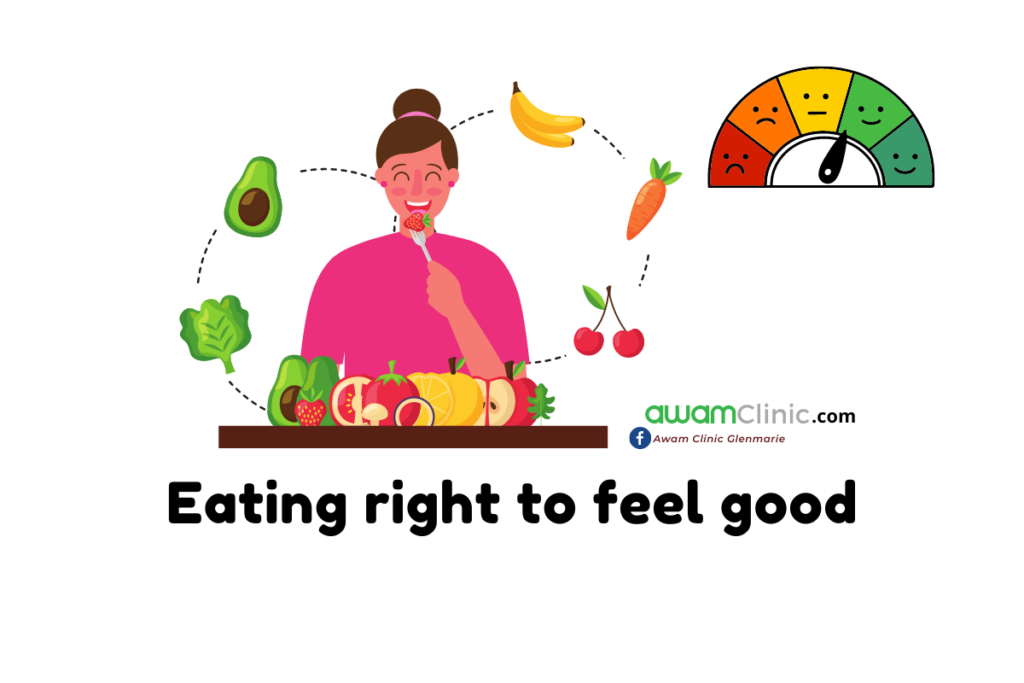Your Mental Health & Food
When it comes to food and mental health, the saying, “You are what you eat,” takes on a whole new meaning. The physiological link between nutrition and mental well-being has been demonstrated in multiple studies, and doctors and mental health professionals alike may not often prescribe dietary changes to treat a variety of mood disorders including depression.

Diet and Mental Health
When mentioned “well-balanced diet”, what comes to mind? The right mix of Carbohydrates, adequate proteins, healthy fats & few servings of fruits and vegetables along with vitamins and minerals.
You can consider Mediterranean or Vegetarian diet as healthier choices. Packed with plenty of fruits, vegetables, nuts, legumes and healthy fats, many people turn to these types of diet in order to improve their personal nutrition and well-being. Research found that it results in reduced symptoms of depression in both men and women.
Carbohydrates, often considered the bane of any dieter’s existence, can increase serotonin, the “feel good” hormone that people with depression have less of. The key to good mental health and diet lies in the origin of carbs. Whole grains provide healthy carbohydrates, while refined white sugar and processed foods do not.

How Food Affects Your Brain
Nutritional psychiatry is a specialized field which refers to a concept called the gut-brain axis that examines the relationship between bacteria in the gut and psychological symptoms. The brain is always communicating with the body, and research has demonstrated a strong connection between the brain’s relationship with the immune system, gastrointestinal system, and mental health.
A variety of psychological and neurological disorders have been studied in relation to bidirectional brain-gut-microbiome (BGM) interactions, including autism spectrum disorder, anxiety, and depression.
Our brain corresponds with your stomach/gut all day through small cells called neurons. Medical science says that there are around 100 million neurons in the brain and, You may be surprised around 500 million in the gut. They all are inter-connected.
With an imbalanced diet, the ‘friendly’ bacteria in the gut get killed and cause a variety of mental health issues. When we change our diet, make friendly bacteria in gut increase, or preserved, this can have a direct positive impact on how you think and feel.

Eating Right to Feel Good
You can’t cure depression, anxiety or any other mental health problem with a diet change but eating nutritious and balanced meals does have a direct impact on the severity of symptoms. Let us use an analogy, the brain to a car-engine and food to fuel. Running car with poor quality/contaminated fuel leads to engine damage.
If we have poor diet, this leads to reduced insulin, vitamin deficiencies and fewer antioxidants resulting in highr levels of stress, physical ailments, and cell damage, all of which influence how you think and feel.
By paying close attention to your diet and always striving to eat healthily, you can prioritize your mental health and physical well-being.


